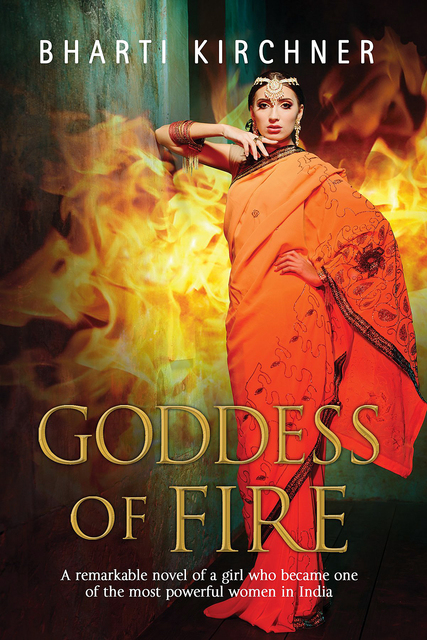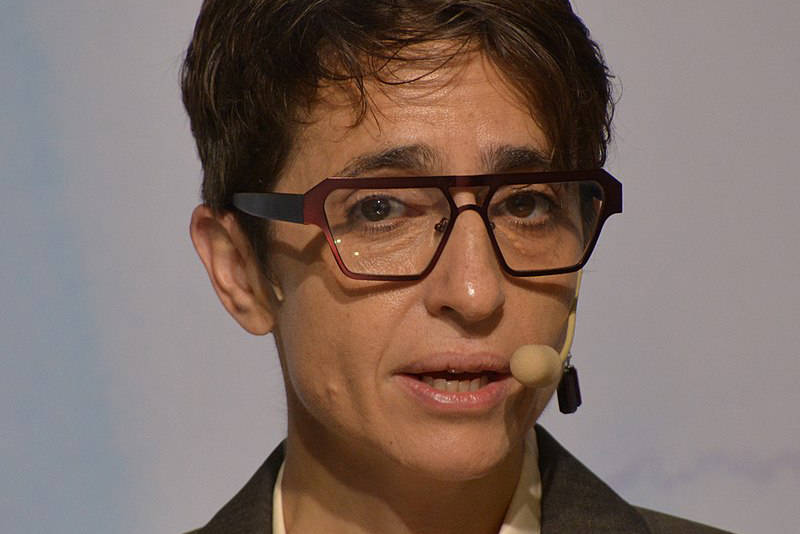When Seattle novelist Bharti Kirchner was growing up in Kolkata, she writes in the afterword to her new novel Goddess of Fire, she “yearned to learn more about Job Charnock, a faithful servant of the English East India Company in its early days, who was believed to have founded Kolkata (then known as Calcutta).” But not much information about Charnock has survived from 17th-century India to the present day. So Kirchner spent a lifetime obsessing over the few facts available, including an account that Charnock saved a young Indian girl from being tossed onto her deceased husband’s funeral pyre, then eventually married her. Everything about his wife—even her name—is lost to history.
Finally, Kirchner became frustrated by the huge gaps in Charnock’s story and decided to solve the problem the way novelists do: She made it up. That exercise in mythmaking eventually became Goddess of Fire. Kirchner gave Charnock’s mysterious wife a name—Moorti—and made her an equal partner in his story, a woman powerful enough to will a city into being. And then she began Moorti’s story with a wicked one-two punch of opening sentences: “The day after my husband died, my brother-in-law and his son came to my door. They dodged the copper bowl I had thrown at them and dragged me by the wrists to the funeral pyre.”
While Moorti is absolutely a strong female lead, Goddess doesn’t superimpose modern values onto every aspect of Charnock’s story. As soon as he saves her, Charnock renames Moorti the more Anglo-sounding Maria and puts her to work as a servant in the kitchen. By modern standards, the romance that follows is highly problematic. A 17-year-old servant falling for the older man who saved her life? You can imagine modern American lawyers salivating at the thought of that civil suit.
So, yes, the book’s politics are necessarily weird. In an early scene, a starstruck Moorti swoons over the name that Charnock gave her: “I took a deep breath and whispered: Maria. The music of this new appellation soothed me. It conveyed hints of the grandeur of a faraway kingdom, so much so that I fancied myself attired in a silk sari, dripping with jewels, perched on a throne.”
It must be said that as novels go, Goddess is kind of square; Kirchner is as earnest as a Mormon on Sunday. Postmodernism and ironic distance have no power in these pages. And some of the exposition is notably clunky, as Moorti delivers Wikipedia-style downloads throughout her narration: “Saltpeter, a kind of rock salt used to make gunpowder and found naturally in our land, was loaded in big ships for England. There it was in demand as ammunition for war.” The book feels eminently old-fashioned in its telling.
But sometimes an old-fashioned novel—one stuffed full of romance and adventure unfolding in far-off places and far-flung times—is what you crave. And Kirchner expertly delivers those particular thrills. Plus, the narrative is layered with sharp observations. As Moorti takes English classes, she reflects on the characteristics of language:
“I liked English words and phrases. They came from a distant island, sounds that were hard, precise, and dripping with confidence. But on this occasion, the words, phrases, and sentences describing a fire scoured my throat and I felt the heat they discharged.”
It’s easy to forget, amid all this talk of old-fashioned novels and earnestness, that the idea behind Goddess of Fire is a transgressive one. Kirchner’s writing of this book is a political act. She’s resurrecting a forgotten woman from history, giving her a name and a personality and a role in her homeland’s creation story. And she’s doing that not by subtracting from existing history, but by adding another voice to the chorus.
Only someone who enjoys a mastery of fiction could perform a time-traveling rescue operation like this. With six novels and four cookbooks to her credit, Kirchner has seemingly been preparing to write Goddess for many years. She’s finally achieved the goal she unwittingly set for herself all those years ago as a girl in Kolkata: She’s telling the story of her birth city, and she’s amplifying voices that have been ignored for far too long. Politically, sexually, and racially, Kirchner is returning some small sense of agency to the people who have lost everything—even their names—to history. Bharti Kirchner reads from Goddess of Fire at Seattle Public Library, 1000 Fourth Ave., spl.org. Free. 7 p.m. Tues., March 29.
Paul Constant is the co-founder of The Seattle Review of Books. Read daily coverage like this at seattlereviewofbooks.com.









